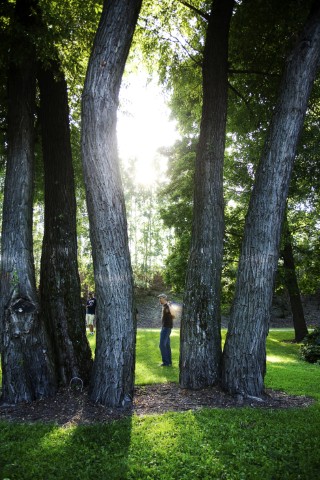Climateguide.fi is a new web site providing various stakeholders with a single objective source for information about climate change cause, effect and mitigating actions.
Anyone with a high electricity bill – which means just about all of us – has considered how to bring that bill down. Most of us are deterred from taking action by the confusing and diffuse mass of information on offer. At the same time, the sense of responsibility to install sustainable solutions is spreading – but again, both individual and collective consumers are easily blinded by environmental science. The pressure is intensifying to switch to more sustainable energy alternatives as the actual effects of climate change become more apparent.
Climateguide.fi -part-funded by Sitra and compiled by the Finnish Environment Institute (SYKE), the Aalto University’s Land Use Planning and Urban Studies Group (YTK) and the Finnish Meteorological Institute – recognises this confusion. Available in Finnish, Swedish and English versions, it aims to provide a “one-stop” source for clear and useful information about the different aspects of climate change and possible responses to it.
“The idea is to bring all the relevant information about climate change science, impact, mitigation and adaptation together in one place,” says Johanna Kirkinen, Energy and Climate Change Lead at Sitra. “Different institutions are responsible for their own aspects of climate change information, but this web site responds to the need to give a broader picture.”
Climate change explained – clearly
Aimed especially at municipal users planning for the future, Climateguide.fi collects all available and up-to-date information about the phenomenon of climate change on a global scale while explaining how Finland’s own climate has already changed and will continue to do so. The site is accessible to any individual interested in climate change cause and effect.
The impacts of the phenomenon on Finland’s natural environment and its society are explained in detail. It may be hard to believe for those of us who spent the last three winters shovelling snow in Helsinki, but the amount of snowfall (although not necessarily precipitation) across the whole country and over the longer term is declining. Climateguide.fi looks at how this will affect winter sports as leisure pursuits and sources of tourist income, for example. The health consequences of increasingly warmer weather are examined too, as is the tourism potential offered by the same trend.
From an industrial perspective, Finland’s interest in weather shifts is especially great. Although the forest products industry has been replaced by electronic and electrical equipment as the most important industrial sector, Finland’s vast forests remain its most plentiful natural resource. Climateguide.fi looks at how longer growing seasons and increased precipitation will affect this resource, observing that the climate zone’s movement northwards will outpace the natural movement of tree zones.
How to make a difference
Explanations and impact models are presented clearly on the site, but sections on Mitigation and Adaptation will perhaps be the most popular reads for site visitors wanting to know how they can make a difference. An international consensus aims to limit global warming to two degrees Celsius but a wide range of actions are necessary to achieve this.
Answering the question, “How can municipalities make a difference?”, the site shows that detached and semi-detached houses account for 43% of total energy savings potential. Municipalities need to increase their own dissemination of information to residents about ways of saving heating energy, from adjusting temperature settings to the installation of air-source heat pump systems.
“The aim is that decisions and assessments can be made on the basis of all this information,” says Kirkinen. “The site will develop and evolve, attracting new readers too, but it will continue to be objective and reliable.”
Tim Bird
